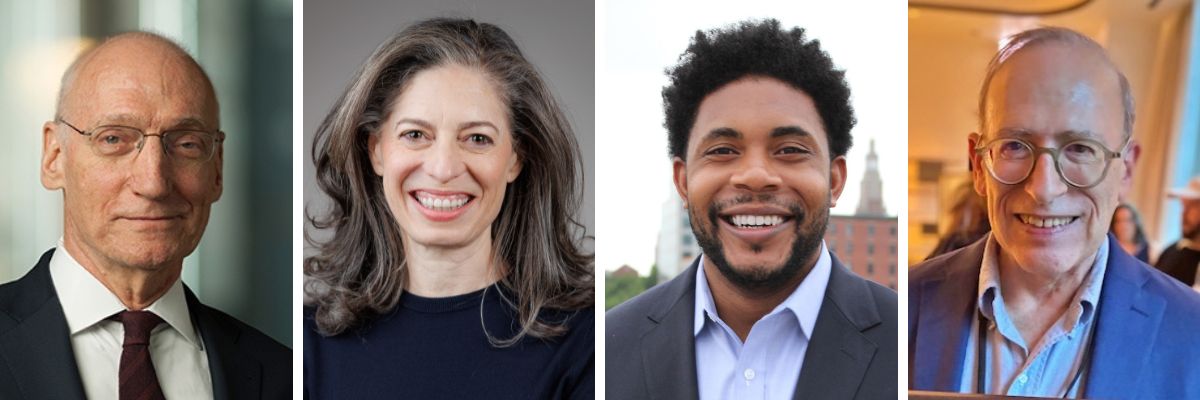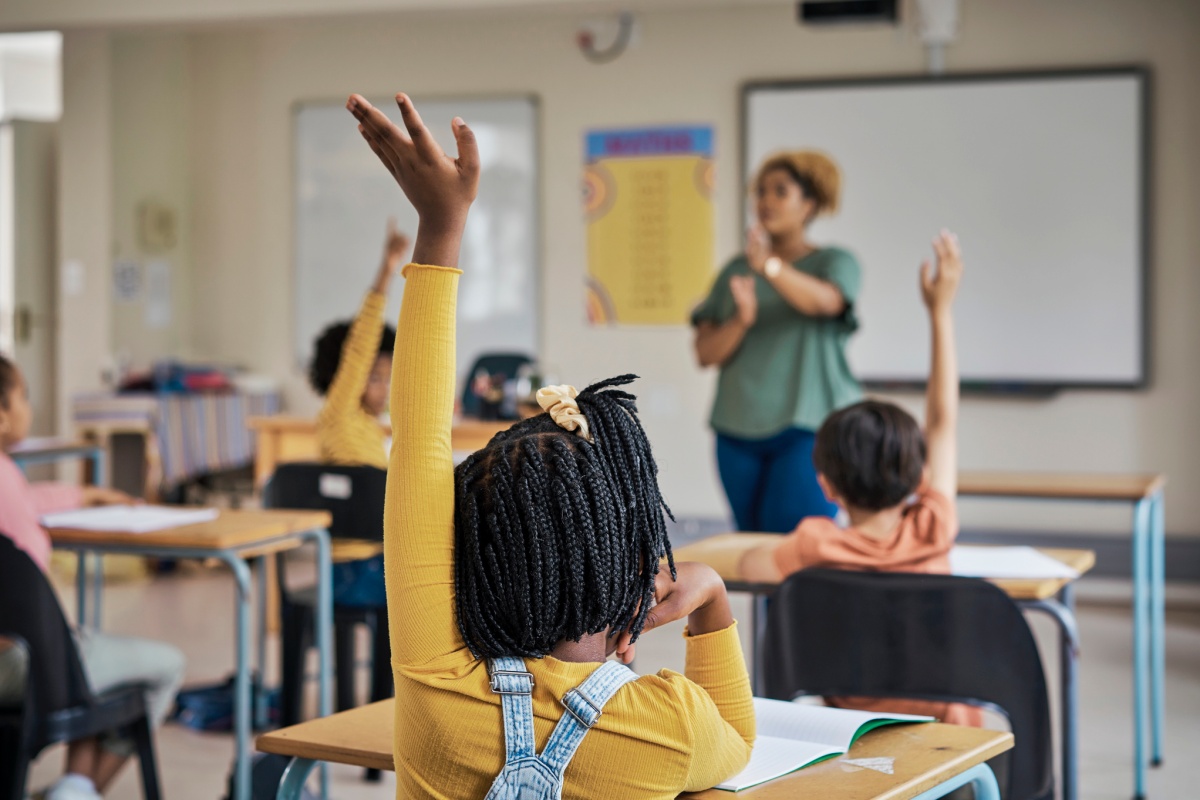[Editor's Note: This discussion has been slightly edited for clarity and readability.]
On the eve of a New York City mayoral election in which education has received relatively little attention, a virtual discussion hosted by Teachers College explored issues that included de facto school segregation, mayoral control, gifted and talented programs, and curricular decision-making in the nation’s largest public school system of nearly one million students.
“Education is arguably the single biggest factor that impacts a person's quality of life, and it is connected to the issue of affordability that is top of mind for many voters and the candidates,” said TC President Thomas Bailey in kicking off “Education in the 2025 New York City Mayoral Election,” a discussion between TC faculty members Jonathan Collins and Aaron Pallas. The event was moderated by Jill Barshay, a columnist with The Hechinger Report.

President Thomas Bailey; Jill Barshay, a columnist with The Hechinger Report; Jonathan Collins, Assistant Professor of Education Policy & Social Analysis and Executive Director of TC’s Center for Educational Equity; and Aaron Pallas, the Arthur I. Gates Professor of Sociology and Education. (Photos: TC Archives)
Bailey observed the TC’s community’s collective commitment to fostering education, “as a driver of the public good,” as well as the importance of civic engagement and cross-sector partnerships for the city’s future. In setting the stage for the discussion, Bailey noted the reciprocal relationship between the New York City Department of Education and Teachers College, and, drawing on his own research in student pathways, emphasized that "our challenge is to take the opportunity of a landscape that is shifting quite significantly and use all the tools at our disposal to prepare those students to be comfortable and effective in that landscape, where they continue to learn, adapt, and to thrive in excellent schools."
Below are the major takeaways from the TC event. As a 501c3 nonprofit organization, the College is nonpartisan and therefore does not endorse any political party or candidate.
School Segregation
One of the incoming mayor’s priorities should be to address the huge variety in the racial, ethnic and social class composition of the city’s schools, according to Pallas, TC’s Arthur I. Gates Professor of Sociology and Education. He said that the city’s attempts to redistribute students have been hampered by “screened admissions and fierce debate over what the zoning areas are that cover a desirable school.”
One promising exception is Brooklyn’s District 15, which in 2019 replaced selective admissions with lotteries in which half of all seats are reserved for low-income students.
Enabling other districts to follow suit will require “aggressive, intentional community engagement about the importance of desegregation and the implications of keeping schools segregated,” said Collins, Assistant Professor of Education Policy & Social Analysis and Executive Director of TC’s Center for Educational Equity. That effort must include “countering stereotypical assumptions that desegregation is zero-sum — that either my kid gets a good education or placement or other kids get it.”
Gifted & Talented Education and Specialized High Schools
The city’s Gifted & Talented programs serve 18,000 New York City elementary school students across 140 schools, while its nine specialized, exam-based high schools annually admit 5,000 ninth-grade students. Supporters say that these schools maximize the potential of talented students, while critics argue that they discriminate against underserved students, and point to underrepresentation among Black and Latino students.
G&T programs do help to retain middle class parents in cities and public schools, Collins said, and can also serve as labs for “new curricular approaches and teaching and learning strategies that could lead to potential policy adoption.”
But, he said, “there’s no clear evidence that G&T programs themselves are effective. What they do is create a selective bias. So what’s really needed is to expand the conditions surrounding G&Ts by engaging students with rigorous instruction. That approach doesn’t need to be exclusive, and in fact can be broadened and scaled.”
To that end, Pallas called for the city to scrap its reliance on a single test for admission to the selective exam schools. “We need a more diverse portfolio of criteria that can allow students to demonstrate that they can thrive in an environment with peers who are equally motivated and talented,” he said.
Mayoral Control
Since 2002, New York City mayors have exercised near total control over the city’s school system, with the power to appoint the chancellor, select the majority of members on the Panel for Educational Policy (PEP), and enact major educational policies. In this year’s mayoral election, one candidate Zohran Mamdani, has said he’d do away with mayoral control, while two others, Andrew Cuomo and Curtis Sliwa have vowed to retain it.
Both options have their merits, Collins said. But ultimately, “governance structures aren't designed to be silver bullets,” he said. “Mayoral control or not, kids need to learn to read. Mayoral control or not, kids need to learn to count. Mayoral control or not, Black students and brown students in schools are still underserved. So, what's going to accomplish the policy goal? Let's start there, and then think about how we can develop accountability but also give leaders enough room and responsibility to execute a reform agenda.”
To overcome the lack of voter participation under either system (with turnout of just 21 percent in the previous mayoral election), Collins advocates for strategies such as participatory budgeting, in which parents and students are involved in discussions of where and how to invest in school projects. Such civic participation is “like a muscle that needs to be exercised and built up.”

(Photo: iStock)
Curricular decision making
Regardless of who controls the school system, Pallas believes that “teachers should not have to develop their own curricula.” Instead, schools and teachers should receive “well-developed curricula that conform to what we know about what works in raising student achievement,” with the latitude to adapt those materials to the needs of the students and communities they serve.
Collins called for broader input into curriculum development. “Education is a communal act, not a practice of a teacher dumping information into a child. It is a shared, communal, participatory process. So we need to do a better job of involving parents, letting them know about curricular markers, standards, what their kids are learning and how to support learning at home, through after school programming or tutoring.”
